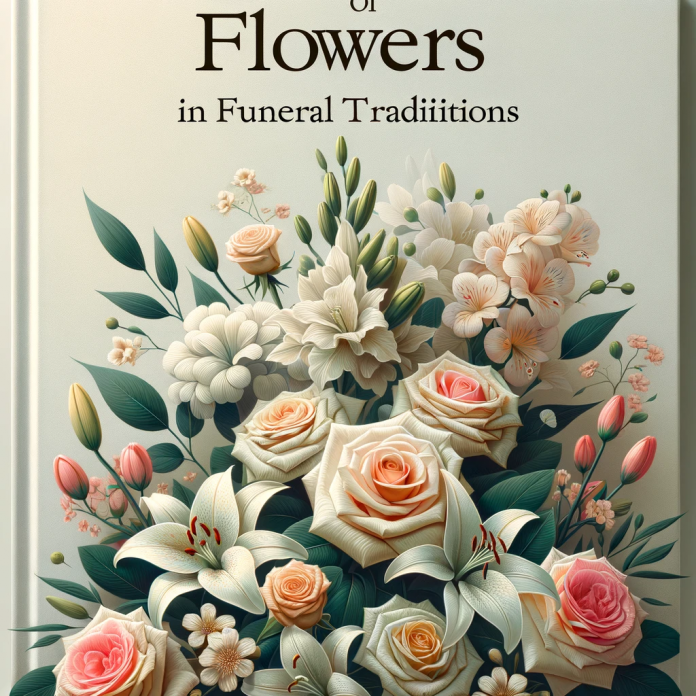Flowers have been an integral part of funeral traditions across cultures for centuries. Their vibrant colors and fragrant aromas serve as a poignant reminder of the beauty of life, even in the face of death. This article delves into the significance of flowers in funeral traditions, exploring their historical roots, symbolic meanings, and the role they play in modern-day ceremonies.
The Historical Roots of Flowers in Funeral Traditions
The use of flowers in funeral traditions can be traced back to ancient times. In many cultures, flowers were used not only as a form of tribute, but also as a means of providing comfort and expressing sorrow.
In Ancient Egypt, for example, flowers were often included in burial rituals as symbols of resurrection and eternal life. Similarly, in Ancient Rome, flowers were used to adorn the funeral pyres, their sweet scent believed to guide the deceased to the afterlife.
Flowers in Medieval Funeral Traditions
During the Middle Ages, the use of flowers in funeral traditions evolved further. Flowers were often woven into funeral wreaths and laid on graves as a sign of respect for the deceased. The type of flower chosen often held specific meanings, a practice that continues to this day.
For instance, roses were commonly used to symbolize love and respect, while lilies represented purity and innocence. These symbolic associations were deeply rooted in religious beliefs and societal values of the time.
The Symbolic Meanings of Funeral Flowers
Today, the symbolic meanings of funeral flowers continue to play a significant role in how we commemorate the lives of our loved ones. Different types of flowers carry different connotations, adding a layer of depth and personalization to funeral ceremonies.
Roses, for example, are often used to express love and respect. The color of the rose can also carry additional meanings, with red roses symbolizing love and respect, white roses symbolizing purity and innocence, and yellow roses symbolizing friendship and joy.
Lilies and Their Significance
Lilies are another popular choice for funeral flowers, often associated with the restored innocence of the soul of the deceased. The white lily, in particular, symbolizes purity and majesty, making it a fitting tribute for someone who has passed on.
Other types of lilies, such as the stargazer lily, symbolize the heavens and the eternal life that awaits us after death. This makes them a comforting presence at funerals, reminding attendees of the continuity of life and the hope of reunion in the afterlife.
The Role of Flowers in Modern Funeral Traditions
In modern times, flowers continue to hold a central place in funeral traditions. They serve as a means of expressing our emotions, sharing our condolences, and celebrating the life of the deceased.
Flowers can be used in a variety of ways during a funeral. They can be arranged into wreaths or bouquets, displayed in vases or urns, or even incorporated into the design of the casket. The choice of flowers and their arrangement often reflects the personality and preferences of the deceased, adding a personal touch to the ceremony.
Flowers as a Means of Expression
Flowers offer a powerful means of expression during a time of grief. Their vibrant colors and fragrant aromas can evoke a range of emotions, helping us to articulate our feelings when words may fail.
For many, the act of selecting and arranging funeral flowers can also serve as a form of therapy. It provides a tangible way to express our grief and pay tribute to our loved ones, aiding in the healing process.
Flowers as a Symbol of Celebration
While funerals are often associated with grief and mourning, they are also a time to celebrate the life of the deceased. Flowers, with their vibrant colors and natural beauty, can serve as a symbol of this celebration.
By choosing flowers that were loved by the deceased or that reflect their personality, we can create a fitting tribute that honors their life and the joy they brought to ours.
In conclusion, the significance of flowers in funeral traditions is deeply rooted in history and symbolism. They serve as a means of expression, a symbol of celebration, and a comforting reminder of the beauty of life. Whether in the form of a simple bouquet or an elaborate wreath, flowers continue to play a vital role in how we commemorate the lives of our loved ones.


-banner.png)





